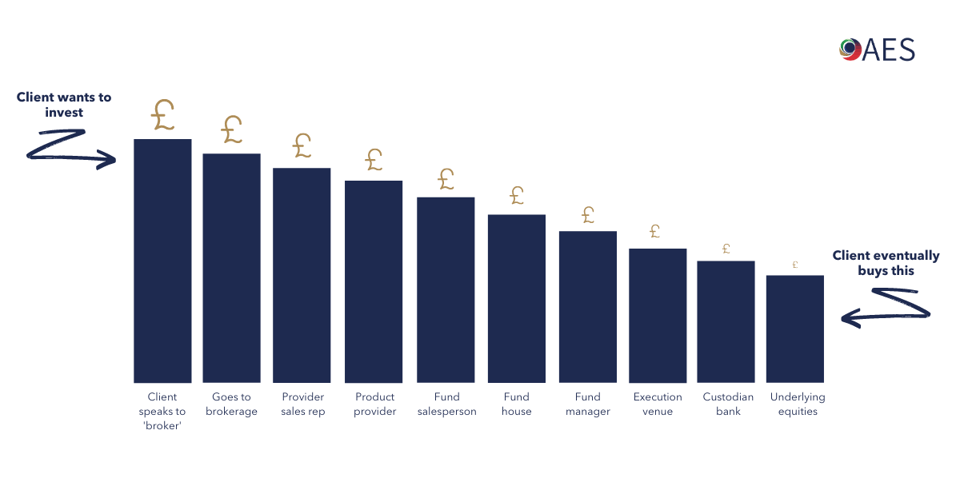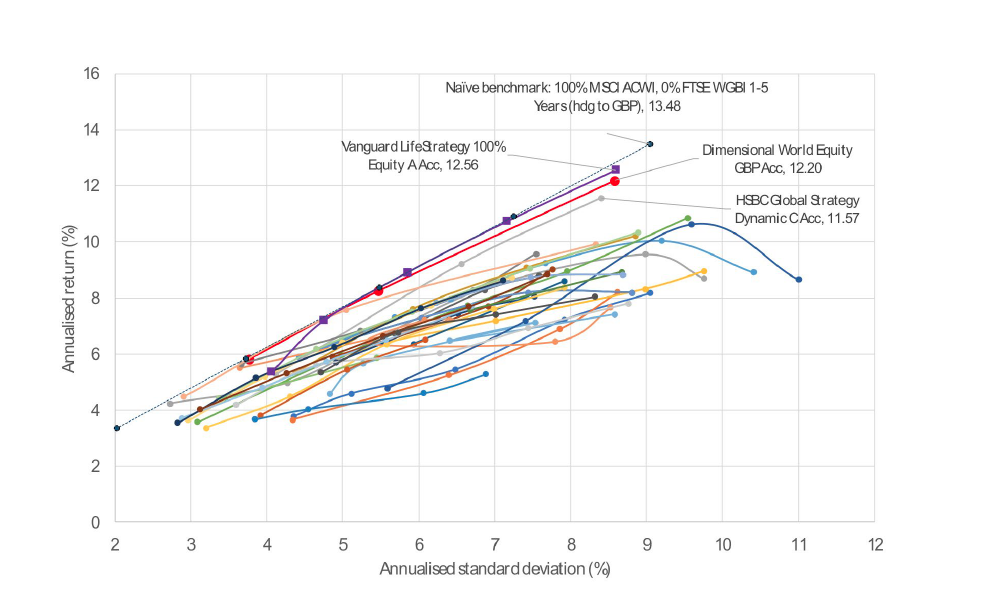The dark side of compounding that you most likely don't know about
It’s all too easy to ignore the small print.
To gloss over the detail and hear the things you want.
Time to stop and think.
Are well concealed charges eating away at your returns?
Costs make an enormous difference to your returns.
It's probably the only thing you can control when it comes to investing.
All evidence shows - higher charges devour your returns.
Whereas, lower costs help drive them.
BBC’s Radio 4’s Money Box program recently found 16 layers of charges in a simple ISA.
Like layers in an onion, traditional offshore investments have many more.

Reporter Lesley Curwen explained how investment costs are like an iceberg.
The explicit cost, effectively a 1% annual management charge, is only part of the total.
Underneath are a whole range of implicit costs — transaction charges, custody charges, brokerage fees, foreign exchange fees and so on — some of which are very hard to identify.
Layer upon layer of charges lurk out of sight…
Senior international investors typically pay between 4 and 6% each year.
Often double the average 2.56% fee in the highly regulated UK.
Long-term damage
Not too long ago I wrote a report for a prospect I'll call Robert.
He invested a total of £1,365,900 into an offshore insurance bond in February 2011.
Today’s surrender value is £1,228,716.
A loss of about -10%.
But the global equity market on an identical allocation to Roberts, as illustrated by the (MSCI World), from Feb 2011 to when we last spoke was +115.22%.
Equating to a growth of +£1,573,787.
Robert should have £2,939,686, but didn’t.
The reason – costs.
Likely caused by self-interested product sales.
The damage is hard to see but its impact is life changing…
Reducing costs is one of the few free lunches in investing.
By using technology, science and good advice it’s possible for you to substantially reduce your costs.
Removing the hurdles of an outdated sales model and improving returns while getting you comprehensive and personalised advice.
The irony is that by paying less in investment charges – your money compounds faster.
Lower-cost funds will outperform higher-cost funds simply based on maths.
As Warren Buffett stated:
“The wealthy are accustomed to feeling that it is their lot in life to get the best food, schooling, entertainment, housing, plastic surgery, sports ticket, you name it. Their money, they feel, should buy them something superior compared to what the masses receive. In many aspects of life, indeed, wealth does command top-grade products or services. For that reason, the financial ‘elites’ – wealthy individuals, pension funds, college endowments and the like – have great trouble meekly signing up for a financial product or service that is available as well to people investing only a few thousand dollars. This reluctance of the rich normally prevails even though the product at issue is – on an expectancy basis – clearly the best choice.”
A quick look at how fund costs affect returns
A recent analysis by Albion Strategic Consulting compares returns across 39 funds.
What is evident is that low-cost, buy-and-hold strategies (such as those offered by Vanguard and Dimensional Fund Advisors) outperform the rest.
This is largely due to the impact of costs on performance.
High costs are costing you
Investing in low-cost funds is simply the best decision.
And who better to justify this than one of the world’s greatest investors, Warren Buffett?
As he mentions in his 2017 letter to his shareholders at Berkshire Hathaway:
"The bottom line: when trillions of dollars are managed by Wall Streeters charging high fees, it will usually be the managers who reap outsized profits, not the clients. Both large and small investors should stick with low-cost index funds."
And as the legendary Jack Bogle often reminded us:
"In investing, you get what you don’t pay for"
It's far easier to make better financial choices when you have the right knowledge and support.
Let AES Education guide you along your financial journey and help you master every area of your life.

